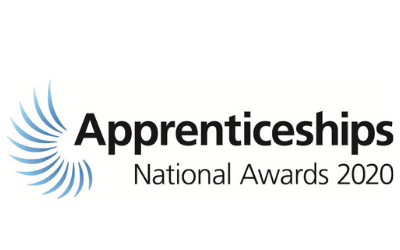
by Iain McIlwee | 3 Sep, 2020 | Main News Feed
The Plan for Jobs has introduced new support for FIS members to take on 16-24 for initial six months from the Government’s new Kick-start scheme. The new £2 billion Kickstart scheme is designed to help employers to create new jobs for those aged 16-24, claiming Universal Credit and at risk of long-term unemployment. There is no cap on the number of places per employer.
Funding will be available for each six month job placement and will cover 100% of the National Minimum Wage for 25 hours a week and employers will be able to top this wage up.
Companies who take part in the scheme will have to prove that the jobs they are making available to applicants are new, are not replacing any already existing jobs and are ‘above and beyond any jobs they were expecting to create’. Employers will be required to provide training and support for the kick starter to find a permanent job, in early August the Chancellor said ‘If employers meet the conditions, government will pay young people’s wages for six months, plus an amount to cover overheads.’
Each application should include how you will help the participants to develop their skills and experience, including:
- support to look for long-term work, including career advice and setting goals
- support with CV and interview preparations
- supporting the participant with basic skills, such as attendance, timekeeping and teamwork
Once a job placement is created, it can be taken up by a second person once the first successful applicant has completed their 6-month term.
Applications are being accepted now directly from employers able to offer 30 or more placements.
In addition to the wage support, there is £1,500 per job placement available for setup costs, support and training.
If your organisation is creating fewer than 30 job placements, you cannot apply directly. You must partner with other organisations in order to create a minimum of 30 job placements before applying . These organisations could include:
- similar employers
- local authorities
- trade bodies
- registered charities
FIS has now been approved by The Department of Work and Pensions to act as a gateway for employers who cannot provide 30 placements, but are keen to benefit from the scheme. If you are interested in taking on some young people on this basis we want to hear from you, please email info@thefis.org indicating your interest and the number of places that you would like to offer.
Further Guidance for Employers is available here.
Young people can find out more about the Kickstart Scheme at the jobhelp site here.

by Clair Mooney | 2 Sep, 2020 | Main News Feed
With additional incentive funding of up to £3,000 now available, taking on an apprentice is a more attractive step for many. Payments are available for employers that take on an apprentice between 1 August 2020 and 31 January 2021 – funding is in addition to the CITB grants available to support a business taking on an apprentice and existing support for training.
From 1 September 2020, employers can apply for these incentive payments for hiring a new apprentice.
Funding payments will be made in three steps:
Step 1: Hire a new apprentice(s) between 1 August 2020 and 31 January 2021 (extention confirmed as 31 March 2021) . FIS can help you with recruitment and selection. Alternatively Recruit an apprentice is the official government service for posting and managing apprenticeship vacancies and traineeship opportunities in England.
Step 2: Apply for the payment after you add the new apprentice(s) to your apprenticeship service account. If you do not already have an National Apprenticeship Services account, please read the guidance and register via guidance to manage apprenticeship funds. FIS strongly encourage all employer members to open an account.
Step 3: You will be eligible for two equal instalments after your apprentice completes 90 and 365 days of their apprenticeship.
Employers can spend the funding payment on anything to support the organisation’s costs, from facilities and travel to uniforms and salaries. This is in addition to the £1,000 payment already available to help employers meet the needs of some groups of apprentices in the workplace.
To register your interest go to apprenticeship.service.gov.uk/ and complete an employer enquiry form. Alternatively, you can call the National Apprenticeship Service on 08000 150 600.
Further Guidance on apply for these incentives if you are based in England is available here,
If you are not based in England and are interested in taking on an apprentice, further information on how to access incentives is available via the links below:
Scotland | Northern Ireland | Wales
Remember, if you are in scope to CITB grants of up to £11,000 may also be available for employers who employ apprentices.
Employer Incentive Payments 2020
FIS employer members are encouraged to apply for funding from source, any third parties offering funding will no doubt mean you receive less than you are actually eligible for. If you need any information, advice or guidance on training, qualifications, apprentices, work placements or eligibility for funding (including CITB grant payments, Local Enterprise Partnership funds and employer allowances via the Department of Work and Pensions) in the first instance please contact FIS via info@thefis.org or 0121 707 0077

by Iain McIlwee | 2 Sep, 2020 | Main News Feed
The new UK domestic regime will cover most goods currently subject to the EU’s CE marking. The technical requirements for these goods will be the same on 1 January 2021 as they are now. However, there will be certain changes, including the introduction of the UKCA marking and a system of third-party conformity assessment by UK-recognised approved bodies, in place of the current EU system of notified bodies.
There will be a ‘standstill period’ which for most CE marked goods will last from 1 January 2021 the 31 December 2021. During this time businesses are encouraged to be ready for full implementation of the new UK regime as soon as possible after 1 January 2021. However, to allow businesses time to adjust, CE marked goods in scope of this guidance that meet EU requirements (where these match UK requirements) can continue to be placed on the GB market until 1 January 2022 where EU and UK requirements remain the same. This includes goods which have been assessed by an EU recognised notified body.
These transitional measures will only apply until the 1 January 2022. From this point the UKCA mark will be required to be displayed on products, where the CE mark is currently used, to show compliance to the UK domestic regime. To ease the burden on businesses, until the 1 January 2023 for most UKCA marked goods you have the option to affix the UKCA marking on a label affixed to the product or on an accompanying document. The economic operators (whether manufacturer, importer, or distributor) should take reasonable steps to ensure the UKCA marking remains in place. From 1 January 2023, the UKCA marking must, in most cases, be affixed directly to the product. You should start building this into your design process ready for this date.
There are four links to guidance we would like to bring to your attention:
- Placing UKCA and CE marked goods on the GB market from 1st January 2021: www.gov.uk/guidance/placing-manufactured-goods-on-the-market-in-great-britain-from-1-january-2021
- Placing manufactured goods on the EU market from 1st January 2021: www.gov.uk/guidance/placing-manufactured-goods-on-the-eu-market-from-1-january-2021
- Prepare to use the UKCA marking from 1st January 2021: www.gov.uk/guidance/using-the-ukca-mark-from-1-january-2021
- Conformity assessment bodies: status from 1st January 2021: www.gov.uk/guidance/conformity-assessment-bodies-change-of-status-from-1-january-2021
Specific additional guidance has been provided for products covered by the Construction Products Regulation from 1 January 2021.
The Construction Products Association have produced an excellent summary for FIS Members in terms of what we currently understand about the Construction Products Regulations from 1st January 2021.
To access the FIS Ready for Brexit Toolkit, click here

by Clair Mooney | 1 Sep, 2020 | Main News Feed
Calling all apprentices, employers, and individuals who champion apprenticeships… the National Apprenticeship Awards 2020 are now open for entries!
Back for their 17th year, the National Apprenticeship Awards are a fantastic opportunity to showcase the apprentices, employers and champions who have gone above and beyond, in spite of the challenges faced during this pandemic.
Entries to the awards are open until 25 September 2020 and this year’s winners will be recognised via virtual ceremonies. It is free to enter the awards, and all entries must be made through www.appawards.co.uk
There are nine categories to recognise exceptional employers, apprentices and apprenticeship champions:
Employer of the Year categories
• SME Employer of the Year (for organisations with 1 to 249 employees)
• Large Employer of the Year (for organisations with 250 to 4,999 employees)
• Macro Employer of the Year (for organisations with 5,000+ employees)
• Recruitment Excellence (the winner is selected from Employer of the Year award entries, and will be awarded to an organisation that has recruited a diverse and high quality apprenticeship workforce).
Apprentice of the Year and Apprenticeship Champion categories
• Intermediate Apprentice of the Year (level 2)
• Advanced Apprentice of the Year (level 3)
• Higher or Degree Apprentice of the Year (level 4 or higher)
• Rising Star of the Year* (nominated by their employer, this award recognises apprentices that have made impressive progress in their career to date, and have the potential to go even further)
• Apprenticeship Champion of the Year (recognises individuals who go ‘above and beyond’ to champion apprenticeships. The nomination is made by a colleague or contact who recognises an individual’s ‘champion’ credentials).
* The Rising Star category will not include a public vote this year due to the condensed format of the awards
There are two webinars to explain the awards process in more detail, including hints and tips on completing your application. These can be accessed here:
• Employer and Rising Star webinar
• Apprentice and Apprenticeship Champion webinar
Regional Ceremonies will take place online between 2 and 6 November, with the national ceremony taking place online on Wednesday 25 November.
To find out more about the National Apprenticeship Awards 2020 please visit: appawards.co.uk

by Clair Mooney | 1 Sep, 2020 | Main News Feed
CITB is looking to offer remote learning as a permanent delivery format. To ensure that what they offer really meets industry needs CITB would like to collect information on the following areas:
- Which employers are requesting and/or would be interested in remote learning continuing to be on offer from CITB?
- What employers reflect are the benefits and/or advantages of remote learning continuing? (i.e. easier for the workforce to undertake, reduces costs, travel, overnight stays etc.)
- Which training courses would employers like to remain as part of the remote learning offer from CITB?
Responses can be sent directly to Julia Stevens Julia.stevens@citb.co.uk. The closing date is Tuesday 8 September. Please indicate your membership of FIS on your response.

by Clair Mooney | 28 Aug, 2020 | Main News Feed
A draft recovery plan for the construction sector in Scotland has been launched today by the Scottish Construction Leadership Forum (CLF). The plan, which has been created collaboratively with industry, sets out the pathway for joint action between industry and the public sector in response to the impact caused by the global pandemic on the on the construction sector.
The construction industry in Scotland has, like many others, been hit hard by the Covid-19 pandemic. The sector in Scotland which provided £7.8 billion GVA to the Scottish economy and employs 143,000 people in over 50,000 enterprises, is estimated to have contracted by 28.6 per cent in June as a result of the Covid-19 pandemic compared to the same month a year ago (June 2019).
The recovery plan has been created through extensive consultation and collaboration with more than 50 organisations across business, Scottish Government, trades unions and other bodies, including the Construction Industry Coronavirus (CICV) Forum, and represents a shared view from across the sector of a plan to get industry back on its feet.
The plan outlines the immediate and short-term response to Covid-19 and sets out a pathway between this and the longer-term transformation required to build a stronger, fairer and greener economic future for Scotland.
Peter Reekie, chief executive of the Scottish Futures Trust and chair of the editorial group of the Construction Leadership Forum, said: “The construction industry in Scotland has received a major blow from the Covid-19 pandemic. However, the level of collaboration which has gone in to preparing this Recovery Plan is unprecedented and sets a strong foundation for transformative recovery for the industry. I urge all stakeholders with an interest in the construction and related industries in Scotland to feed in your thoughts to make it even stronger.”
Ken Gillespie, chair of the Industry Leadership Group, said: “This plan has only been possible through the depth of collaboration across the sector, and hard work of all involved, and demonstrates the sector’s ability to come together in a time of crisis. This is only the beginning though. The plan will evolve and respond to reflect the feedback and the needs of the sector. We are therefore calling for industry to review and contribute to the plan.”
The plan identifies five areas for concerted and collaborative efforts over the coming months and has established Sub-Groups to develop and progress joint action plans:
- Pipeline and Commercials
- Skills and Workforce
- Transformation
- Supply Chain Resilience and Capability
- Industry Data and Insight
The plan calls for key actions to respond to immediate needs which include:
- A clear pipeline of work brought to market quickly and efficiently on fair commercial terms which reflect the reality of the Covid-19 environment.
- Support of employment, fairness of work and those who may become unemployed through what will be a difficult period.
- Transformation of working practices to maintain and enhance worker safety whilst enabling productivity in the Covid-19 working environment.
Housing Minister Kevin Stewart said: “The construction sector supports many other areas of our economy so it is important that we maintain the health and vitality of the industry. In order to develop this plan we have reached new heights of collaboration but we are now keen to hear from the wider industry to ensure that we arrive at a plan that will preserve jobs and help to revive our economy.”
The Scottish Construction Leadership Forum (CLF), which has led the development of the plan, is a collaborative initiative of Construction Scotland and the Scottish Government . It was established in March 2019. Chaired by Housing Minister Kevin Stewart for the duration of the crisis, it widened its membership in response to Covid-19 and has already developed and implemented plans to get the industry safely back to work to develop and implement an action plan of improvement initiatives aligned with Government policies and the Construction Scotland Industry Strategy. Several streams of work are ongoing and prior to Covid-19, the Forum was at the early stages of considering a wider agenda for change across the industry.
The CLF shared vision is of an industry that promotes a safe, productive, profitable, digitally-enabled, low-carbon, and socially responsible construction industry which offers quality jobs and fair work to a highly skilled and diverse workforce and a quality and life-time value product to its customers.
The recovery plan is available to view on https://www.constructionforum.scot/ Industry is invited to provide feedback to the plan via the website by 15 September. CLF will take all feedback on board to help develop the plan further, with regular updates published on the CLF website.






